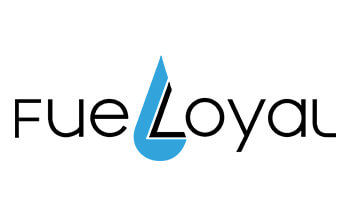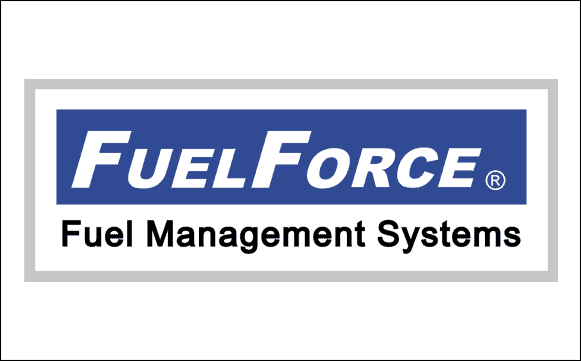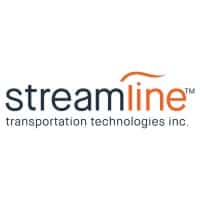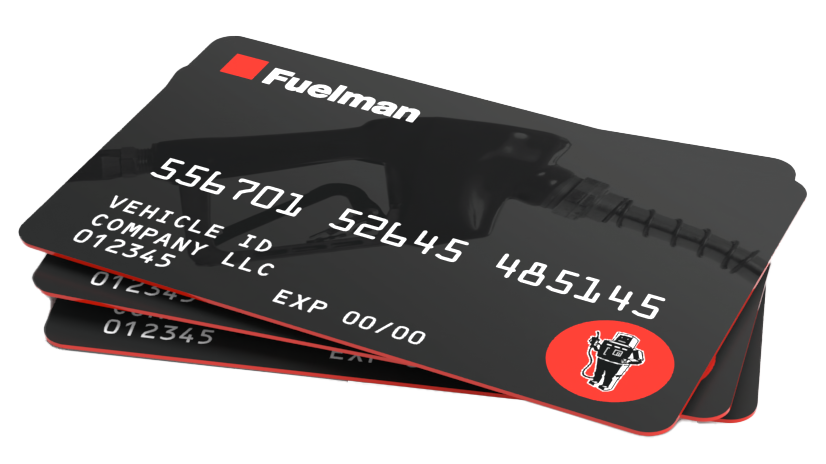Fuel management systems have gained significant popularity due to their ability to automate data collection and consolidate it in a centralized platform. These systems offer an ideal solution for fleets looking to minimize fuel-related expenses and avoid potential issues that can hinder operational efficiency.
Efficient fleet operations are essential for maintaining customer satisfaction and driver contentment. To help you make an informed decision, let’s explore a few companies that provide outstanding fuel management systems for your business.
Quicklook: Best Fuel Management System
- Best For Security: FueLoyal
- Best For Customer Support: FuelForce
- Best For Small Fleets: Verizon Connect
- Best For Medium-Sized Fleets: Navistream
- Best For Third-Party Integration: FuelerPlus
- Best For Fuel Economy Metrics: Fleetio
6 Best Fuel Management System Options
The following is a more in-depth look at the companies mentioned above and the unique offerings of their fuel management system.
FueLoyal

If you’re seeking a fuel management system that prioritizes enhanced security, FueLoyal is an excellent choice. FueLoyal offers three distinct package options tailored to meet the specific needs of your fleet. Their comprehensive system comprises both hardware and software components, including an anti-theft Smart Fuel Cap. This innovative cap accurately measures the fuel added to the tank and effectively prevents tampering and siphoning attempts. Additionally, FueLoyal provides real-time updates, ensuring you have access to the latest information, and their system is straightforward to install for seamless implementation.
Best For: Security
Designed For: 18-wheelers
Transaction Tracking: Yes
Fuel Efficiency Tracking: Yes
Fuel Processing Methods: Proximity Card
Special Features:
- Smart Fuel Cap
- Fuel Navigator
Benefits:
- Cuts back on fuel theft
- Finds lowest-priced gas stations along route
Disadvantages:
- Do-it-yourself device installation
Pricing:
- Launch: $39 per month per truck, one-time $299 device fee
- Optimum: $35 per month per truck, one-time $299 device fee
- Quick on Board: $49 per month per truck, no device fee
FuelForce

With a reputable presence spanning over 35 years, FuelForce has maintained its competitive edge by delivering high-quality and user-friendly products. Their cloud-based system stands out as the most advanced in the industry, making customized reporting a seamless process.
One of FuelForce’s standout features is its exceptional customer support team. Available whenever you need assistance, their knowledgeable staff is well-equipped to diagnose any issues you may encounter and provide effective solutions. FuelForce takes pride in delivering professional and reliable customer support to ensure a smooth experience for their clients.
Best For: Customer Support
Designed For: On-site fueling
Transaction Tracking: Yes
Fuel Efficiency Tracking: Yes
Fuel Processing Methods:
- Keypad
- Proximity card reader
Special Features:
- Cloud-based platform
- Secure Authorization & Reporting
- Ruggedized Hardware
Benefits:
- Download and customize reports
- Logs transactions with the driver, vehicle, mileage, and hose
- Hardware can withstand harsh climate conditions
Disadvantages:
- 24/7 customer support is an additional cost
- Software can be complicated to set up
- No free trial
- Expensive
Pricing: Inquire for a custom quote
Verizon Connect

Verizon Connect is a great option to help those with smaller fleets find hidden fuel costs to improve efficiency. The reports allow you to study trends and measure your fleet’s performance. You’ll quickly be able to reduce fuel consumption to cut back on operational costs with this system.
Best For: Small Fleets
Designed For: Budget conscious fleet managers
Transaction Tracking: Yes
Fuel Efficiency Tracking: Yes
Fuel Processing Methods: Proximity Cards
Special Features:
- Fuel Transaction Report
- Flexible Fuel Card Program
- Engine Idling Report
Benefits:
- Monitor fuel expenses
- Integrates with most trucking fuel cards
- Minimize engine wear
Disadvantages:
- No free-trial
- Long-customer service wait times
- Contracted service
Pricing: Inquire for a custom quote

Navistream
Navistream is specifically designed to cater to the needs of medium-sized fleet management, offering a comprehensive range of features that ensure compliance as an electronic logging device (ELD). With its user-friendly fuel management system, you can effortlessly monitor and manage your fuel consumption. Navistream’s intuitive interfaces are designed to be easily navigated, even by drivers who may be less technologically inclined. This ensures a smooth user experience for all members of your fleet.
Best For: Medium-sized Fleets
Designed For: ELD Compliance
Transaction Tracking: Yes
Fuel Efficiency Tracking: Yes
Fuel Processing Methods: Proximity Cards
Special Features:
- Detailed diagnostic reporting
- Driver performance reports
- GPS Tracking
Benefits:
- Identify vehicles in need of maintenance
- Detect dangerous driving habits
- Find excessive idling
Disadvantages:
- Occasional software glitches
Pricing: $35 per month per user to start
FuelerPlus

FuelerPlus offers a comprehensive solution for managers to accurately record dispensed fuel and fuel transfers between tanks. The system is compatible with both iOS and Android platforms, enabling drivers to access it seamlessly on the road, regardless of their mobile phone type. Moreover, if you utilize third-party systems such as Gasboy or Phoenix, FuelerPlus provides effortless fuel data import functionality, ensuring that all your information remains centralized and easily accessible.
Best For: Third-Party Integration
Designed For: Construction Companies
Transaction Tracking: Yes
Fuel Efficiency Tracking: Yes
Fuel Processing Methods:
- Keypad
- Proximity Card
Special Features:
- In-Person Training
- Free Trial
- Third-Party Integrations
Benefits:
- Hands-on learning for software
- Test product before buying
- Use seamlessly with most third-party fuel management solutions
Disadvantages:
- Interface can be confusing
- No free trial
Pricing: Inquire for a custom quote
Fleetio

This fuel management system provides everything you need to be proactive and not reactive when it comes to fleet maintenance. It automates your process, so you don’t have to worry about entering data manually.
Fleetio’s fuel reports optimize the fleet’s fuel usage and help you understand the cost per mile for each of your assets. The reports also provide metrics that allow you to recognize any drivers that need to be trained on safer driver habits and efficiency.
Best For: Fuel Economy Metrics
Designed For: Fleets of all sizes
Transaction Tracking: Yes
Fuel Efficiency Tracking: Yes
Fuel Processing Methods: Proximity Cards
Special Features:
- Fleetio Go App
- Fuel Card Integration
- Fuel activity alerts
Benefits:
- Allows drivers to log and upload fuel receipts
- Automatically import fuel card entries
- Receive reports of suspicious fuel activity
Disadvantages:
- Interface is busy
- Minor software issues
Pricing:
- Pro: $5 per month per vehicle, billed annually
- Advanced: $7 per month per vehicle, billed annually
- Enterprise: Inquire for a custom quote.
What Is a Fuel Management System?
A fuel management system regulates the fleet’s fuel consumption and costs. Before automated systems were put in place, fuel data was gathered using pen, paper, and human error. Now, fleets have the ability to collect real-time data and analyze reports to assist with reducing fuel costs and increasing their bottom line.
How Does a Fuel Management System Work?
While not all fuel management systems are identical, there are some basic characteristics used by each one. You’ll receive a combination of hardware and software that work together to monitor and control the fleet’s fuel consumption.
The hardware may be directly attached to the vehicle or a fueling station. The software then gathers data each time the tank is filled and produces cost-per-mile and other reports needed to improve efficiency and cut fuel costs.
What to Consider With Fuel Management System
There are a few considerations to take into account when choosing the best fuel management system for your fleet. Here are a few of the items that should be at the top of your list.
Costs of System
The fuel management system cost will be based on your fleet’s particular needs, the number of vehicles, and the level of automation you’re seeking. You may only feel you need a stand-alone system. What is a stand alone fuel management system?
It’s a processor that can be programmed to control an engine’s fuel aspects. Data is retrieved with a USB stick and reviewed on an Excel spreadsheet. There is no software component to this system.
If you want more, you can use a card lock system where drivers use a key, card, or fob and input odometer readings. The data is then sent to the software for tracking.
Or you may want to control how much fuel is allowed to be dispensed or add a security device. The more technology or detailed reporting you desire, the more add-ons you’ll need.
A basic system can cost around $80 per year for a vehicle, while a more advanced system can be as high as $1,200 per year. Each feature add-on cost is different with each company, so it’s best to inquire about the features offered and the pricing.
Data Collection
It’s important to know how data is collected to maximize the effectiveness of your fuel management system. Fuel is one of the largest expenses for a fleet, and finding a way to cut back on costs will result in huge savings.
Monitoring fuel consumption allows you to quickly identify any activity that is outside the norm. If someone is guilty of fuel theft, you’ll know exactly who and when with real-time alerts. You’ll also be able to see how efficiently the vehicle is burning fuel and make repairs as needed.
If a driver travels outside of their assigned route, the fuel reports will indicate that through odometer readings and fuel usage. You also have the option of limiting the amount of fuel a specific truck is allowed. Setting parameters ensures the vehicle won’t be able to go further than intended.
Idling and driver safety reports are two ways to locate vehicle operators who need more training on saving fuel. Hard accelerations and speeding consume more gas, as does sitting at a loading dock while the truck is running. You’ll be able to get ahead of these situations and conserve time as well as money with a detailed fuel management system.
Diagnostic alerts will let you know when it’s time for an oil change, so you aren’t burning through fuel unnecessarily. Find out what kind of reports the company provides before moving forward.
Additional Features
Sustainability options are an ethical concern in which fleets should consider investing. Many of your customers want to improve their carbon footprint and look for companies implementing greener options. It also shows your customers you’re forward-thinking and that you care about the future of your communities.
Fuel tax reporting can be a headache that fuel management systems can alleviate. Those quarterly tax returns made mandatory by the International Fuel Tax Agreement (IFTA) can be part of your automated process. You won’t have to worry about inaccuracies due to human error, meaning you can spend more time focused on meeting your fleet’s needs.
Customer Support
The company you choose should be able to support you during the installation and repair process. Additionally, what is their response time?
If you’re having trouble with equipment, how soon can they get a replacement out to you? How long do you have to wait on hold to speak with someone? All of these are important questions that a good fuel management company can easily answer.
The longer you have to wait, the less efficient your fleet is. Be sure there’s a service agreement policy with any relevant procedures listed in writing. If the company gives you a hard time about this, keep searching.
Fuel Management vs Fuel Monitoring
Fuel monitoring focuses on the amount of fuel in the tank at any given time. Fuel management covers more aspects of the fueling process. It tracks the fuel once it leaves the supply tank. That includes who pumped the fuel, which vehicle received it, and how much as well as when the fuel was dispensed.
Fuel Management Systems Are For All Fleet Sizes
The right fuel management system for your fleet will enable you to maximize fuel consumption and minimize theft, idling, and other issues that eat up your fuel costs.
Since fuel is one of the biggest expenses your fleet will have all year, it’s important to ensure your vehicles are running efficiently and drivers aren’t misusing their time on the road. So, shop around and ask lots of questions to locate a system that is cost-effective and convenient.
FAQ
It’s a system that monitors and tracks fuel consumption.
It’s important to identify ways to improve fuel efficiency and reduce costs.
They are typically a combination of hardware and software that work in conjunction to monitor your fuel usage.


